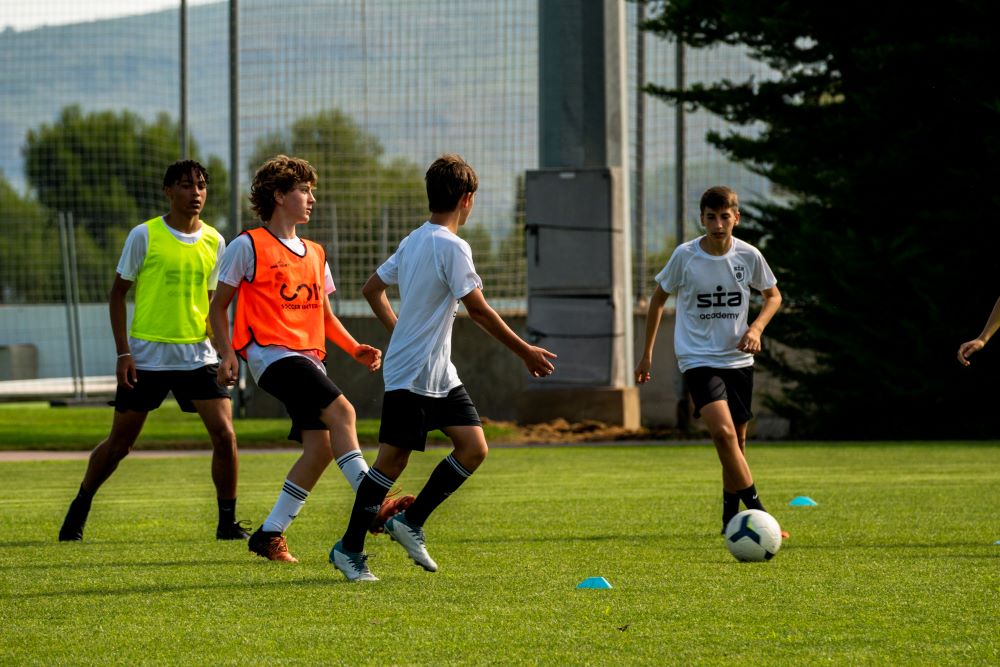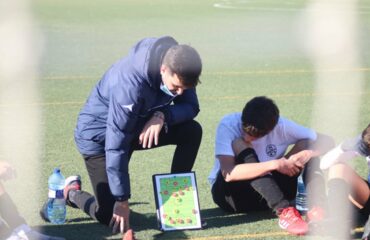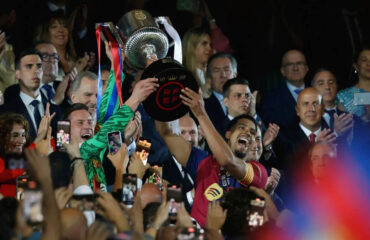Sports Nutrition: What to eat before and after a match for optimal performance in young athletes.
Nutrition is a crucial component in the world of sports, and soccer is no exception. Proper nutrition before and after a soccer match can make all the difference in a player’s performance and recovery. To find out what to eat before and after a soccer match, we will explore in this article what the pre-match meal and post-match meal should look like to ensure optimal performance and recovery in soccer.

Pre-match soccer meal
Pre-match meal is essential to provide players with the energy and nutrients necessary to face the physical and mental challenge of a football match. Here are some key guidelines that will put us in optimal conditions to perform at our best.
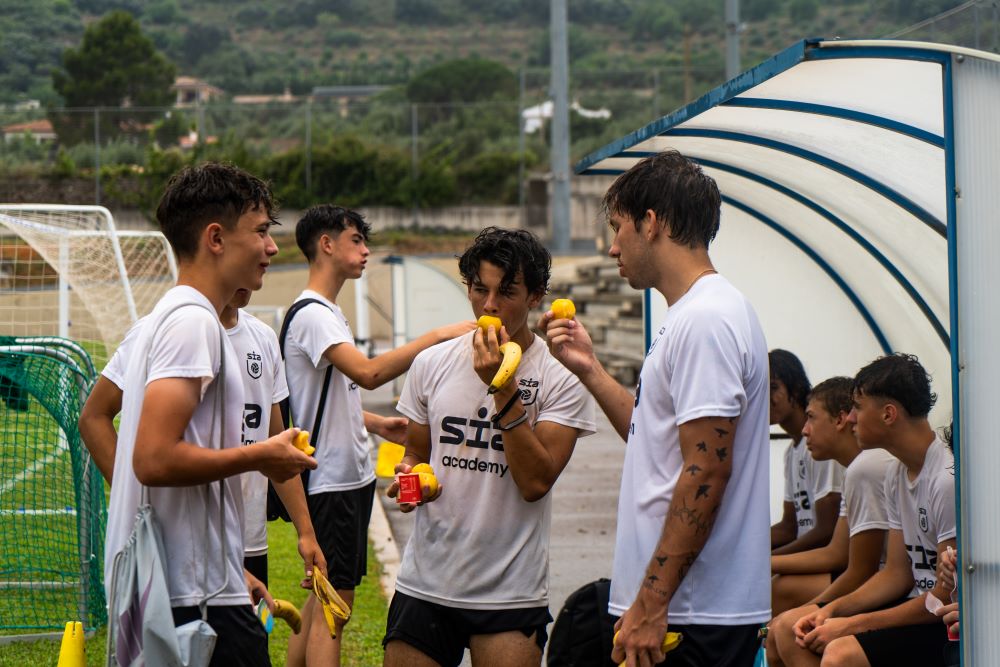
Meal before a soccer match
Carbohydrates are the main source of energy for the body, especially in endurance sports and in a sport as complete as soccer. Opt for quality carbohydrates, such as whole grains, brown rice, whole wheat pasta, potatoes and fruits. These foods are the perfect combination to provide sustainable energy throughout the game. In some cases we could also suggest that grains and pasta are not whole grains, since depending on the athlete it may lead to some digestive problems.
Proteins are important for maintaining and repairing muscle tissues. It is recommended to include lean proteins, such as chicken, turkey, fish. Avoid fatty foods or heavy protein sources before the game, such as red meat, as they can cause stomach discomfort.
It is important to avoid large meals before the game, as they can cause a feeling of heaviness and an upset stomach. Instead, opt for light, easily digestible meals.
Hydration before a soccer game
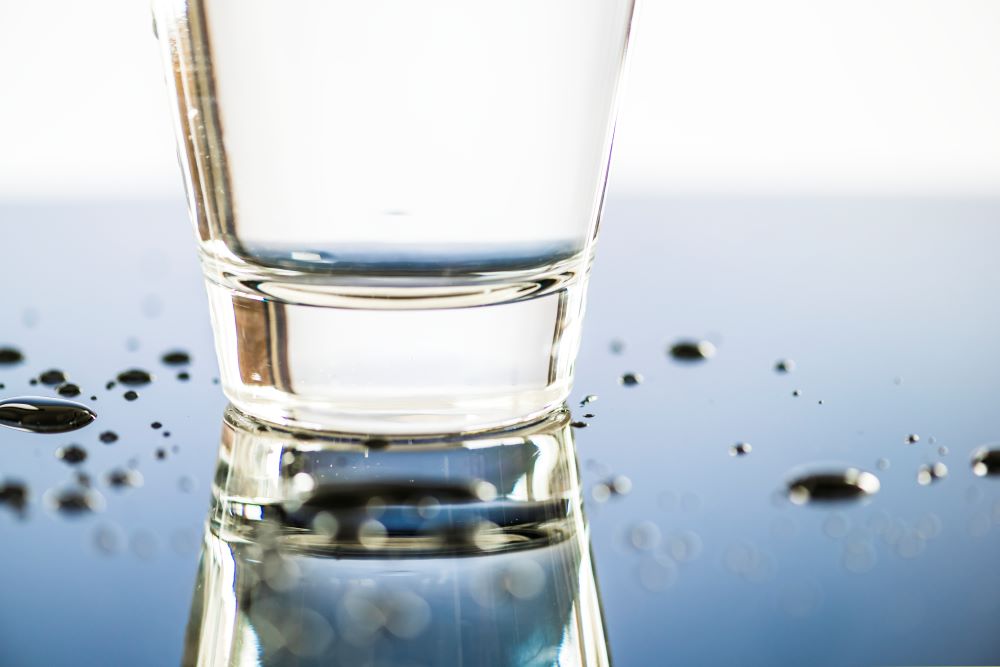
Adequate hydration is essential. Players should drink enough water before the game to ensure they are well hydrated. It is also useful to consume sports drinks that contain electrolytes to maintain an adequate balance of minerals so that performance does not decline. Sometimes due to nerves before the game, there are athletes who find it difficult to hydrate before, during and after the game. In these cases it would be advisable to consult with our nutritionist to advise us between the high range of hypotonic, isotonic and hypertonic drinks.
How long should one wait after eating to play a game?
Ideally, the pre-match meal should be consumed 2.30 to 3 hours before the start of the game. This gives the body time to digest the food and store energy in the form of glycogen in the muscles and liver. It should be noted that the time will be flexible depending on variables such as age, type of food, stress, among others.
Taking supplements before a soccer match?
In some cases, supplements, such as protein shakes or energy drinks, may be considered, always under the supervision of a health professional or nutritionist. However, it is preferable to obtain nutrients from natural sources as much as possible.
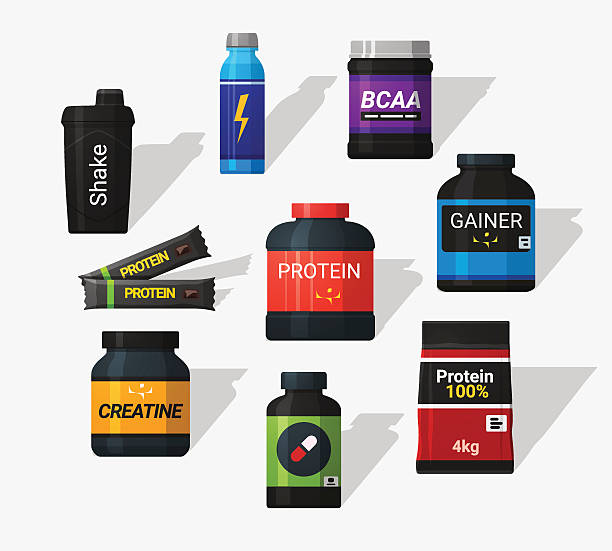
Post-match meal
Post-match recovery is key to ensuring players recover properly and are ready for the next challenge. Here we will show you some of the recommendations for the post-match meal:
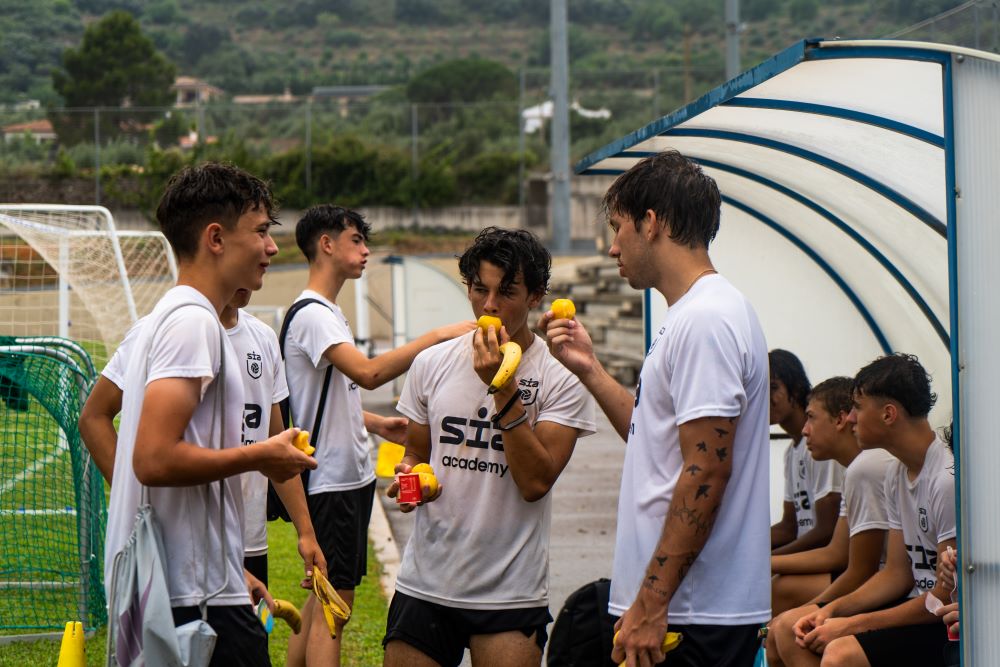
Rehydration after a soccer match
The first priority after the game is to rehydrate. Players often lose a significant amount of fluid through sweat during play. Drinking water and electrolyte-rich sports drinks helps restore water balance.
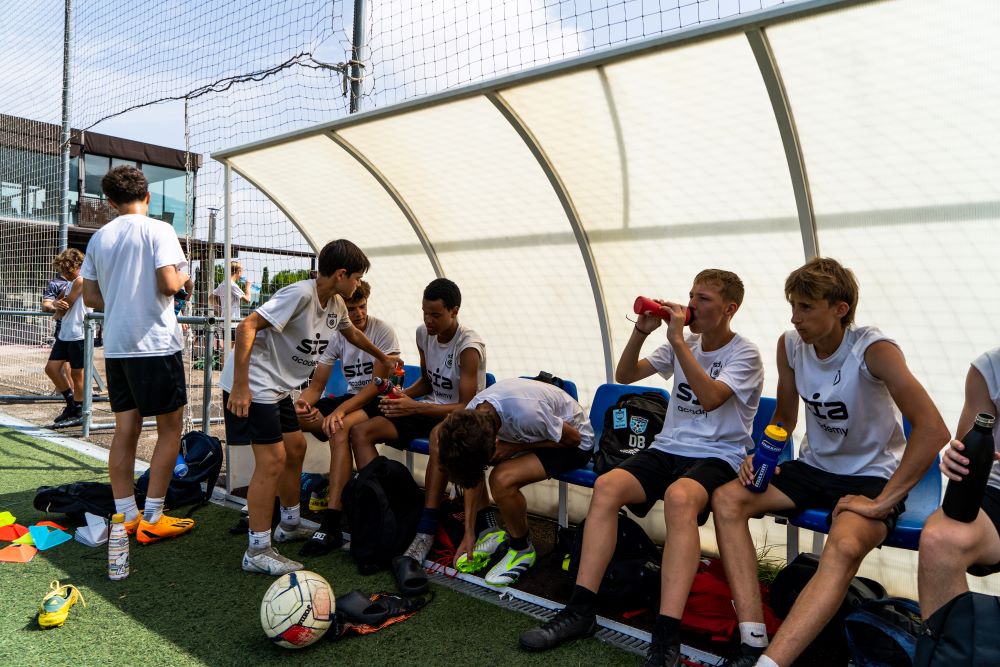
What to eat after playing a soccer match?
After the match, it is important to replenish muscle glycogen stores depleted during the game. Carbohydrate-rich foods, such as pasta, rice, whole-grain bread, and fruits, are excellent options for restoring energy.
Protein is also essential in recovery. They help in muscle repair and growth. Some lean protein options include grilled chicken, fish, or vegetable equivalents such as textured soy.
Including antioxidant-rich fruits and vegetables, such as berries and spinach, helps combat oxidative stress and reduce inflammation. Also, make sure you get enough essential nutrients like vitamins and minerals.
After the game, avoid fast foods or foods high in saturated fats, as they can delay recovery. These foods are difficult to digest and can cause inflammation.
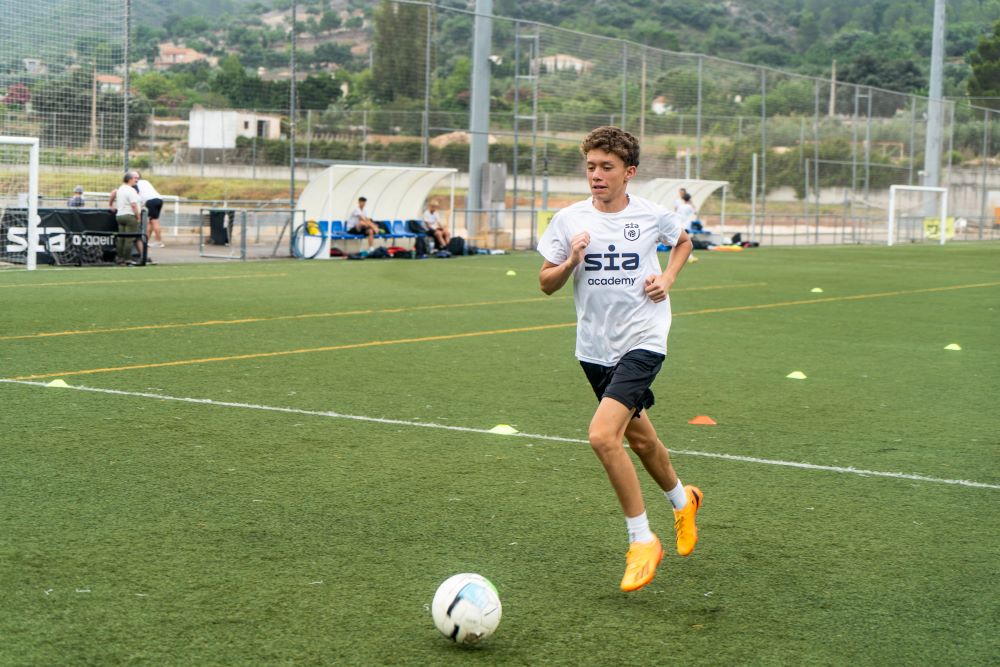
How long should one wait to eat after a soccer game?
Although in the past there was a lot of emphasis on the anabolic window being in the 2 hours after the game to make the most of the recovery period, currently this period is a little more flexible, although the importance should not be underestimated to replenish muscle glycogen and repair muscle tissues.
Taking supplements after a soccer game?
Like pre-match supplementation, the contribution of proteins and carbohydrates may be assessed in certain cases, but it will be necessary to raise the case with a nutritionist to advise whether it is necessary or not.
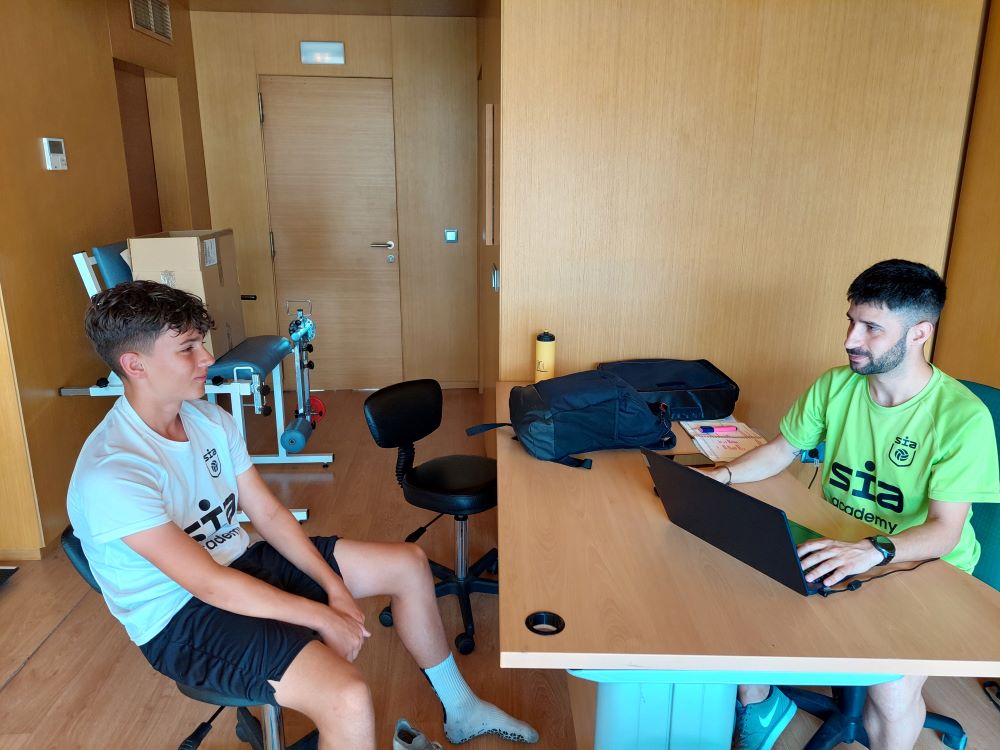
Conclusions
Proper nutrition before and after a soccer match is essential for optimal performance and recovery of players. Choosing foods rich in quality carbohydrates, lean proteins, adequate hydration and essential nutrients plays a fundamental role in success in the field.
An individualized approach taking into account the needs and preferences of each player, as well as consultation with a sports nutritionist, is the key to optimizing nutrition in football. Let us remember that adequate nutrition is an essential part of preparation and performance in any sport, including football.



